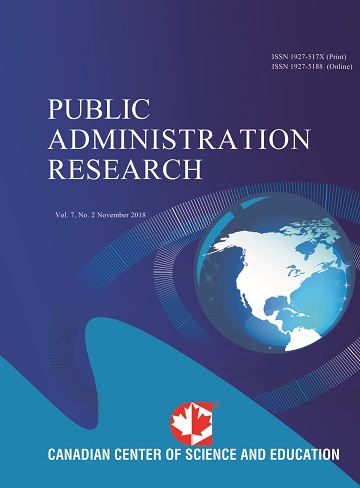The Discursive Construction of the Thousand Women Program in Brazil
- Elisabete Corcetti
- Susane Petinelli Souza
Abstract
This article analyzes the assumptions and logic of the Programa Mulheres Mil (Thousand Women Program) in Brazil, observing the formation of the network of actors involved and the programs’ instruments. The study used qualitative research, guided by critical discourse analysis. The results help to understand that the logic of the problem – connecting poverty to a lack of education and unfair training opportunities – contributed to justifying and legitimizing the policy instrument. The program’s unexpected effects are closely related to the social construction of women. Based on the methodology, its rules are mechanisms supporting and maintaining the inequalities and asymmetrical power relations observed within the program. Therefore, although the program has a relevant role for social inclusion, it presents significant limitations regarding gender equity and the promotion of social justice, which requires a serious political debate on the initiative’s effects, challenges, and opportunities. The PMM is a compensatory policy designed to develop and disseminate an instrument with assumptions and logic that operate more as a self-legitimation strategy than an integrated solution to public services. We suggest following the beneficiaries’ life project and adopting a structure separated into modules as strategies to overcome the challenges observed in this research. A structure based on modules would meet the needs of women who desire educational inclusion, offering the possibility of education leveling so those who want can continue schooling.
- Full Text:
 PDF
PDF
- DOI:10.5539/par.v11n2p7
Journal Metrics
h-index (2017): 7
i10-index (2017): 6
h5-index (2017): 7
h5-median (2017): 13
Index
- COPAC
- CrossRef
- DTU Library
- EBSCOhost
- EuroPub Database
- Excellence in Research for Australia (ERA)
- Genamics JournalSeek
- Ghent University Library
- Google Scholar
- Harvard Library
- Infotrieve
- Jisc Library Hub Discover
- LOCKSS
- Mir@bel
- Norwegian Centre for Research Data (NSD)
- Open J-Gate
- PKP Open Archives Harvester
- Publons
- ROAD
- Scilit
- SHERPA/RoMEO
- Stanford Libraries
- Ulrich's
- UniCat
- Universe Digital Library
- UoS Library
- WorldCat
Contact
- Gabriel TaiEditorial Assistant
- par@ccsenet.org
